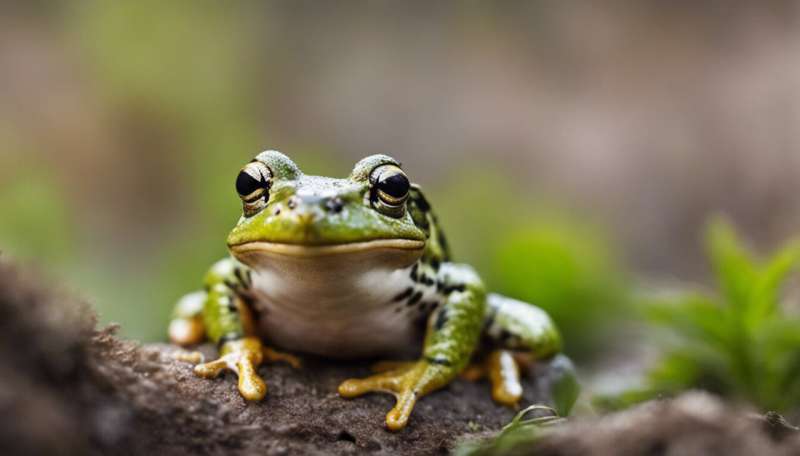Make your garden frog friendly – amphibians are in decline thanks to dry ponds

Garden frogs and toads are in decline. The latest data from RSPB Garden Birdwatch reveals that we are seeing one-third fewer toads and 17% fewer frogs compared to 2014. Many people forget that our gardens can be important havens for wildlife. But with ponds drying up, amphibians are losing out.
We should be worried about these declines. Frogs and toads may not be our most glamorous garden inhabitants, but they offer an important opportunity to connect with wildlife within a domestic environment.
As RSPB conservation scientist Dr. Daniel Hayhow says: "Most people remember seeing tadpoles at the local pond or a toad emerging from under a rock while they were growing up. These first experiences with nature stay with us forever. Unfortunately, the sights and sounds of wildlife that were once common to us are sadly becoming more mysterious."
These early connections with wildlife are being lost, leading to concerns that some children may be suffering from nature deficit disorder which can affect their mood and attention. Research shows that children are more familiar with Pokémon characters than they are with our native wildlife. We need to find more ways to encourage interactions with nature. Ponds, even small ones, are a great way of doing this.
Population declines in amphibians is caused by the reduction of garden ponds, and the reduced numbers of ponds in the wider countryside. We lost 50% of our ponds in the UK over the 20th century, and many that are left are in a poor condition because of pollution and lack of management.
Frogs and toads need clean ponds in which to breed, but outside the breeding season you'll find them in tall grass and log piles. The fashion of keeping our gardens meticulously neat and tidy is leaving our wildlife with nowhere to hide. Amphibians also provide a very useful pest control service (they love eating slugs and snails) so encouraging them into gardens could bring many benefits.
So how do we help? The Freshwater Habitats Trust is leading the Million Ponds Project with the aim of creating networks of ponds. You don't need to rebuild your garden to get involved, as even a small outside tub can be enough to provide a suitable habitat for amphibians.
If you are feeling more generous, then creating a larger pond can be a fun project – especially with children. Once put in, it will only take a matter of days before something decides to make it their home. It will usually be invertebrates and plants to begin with, but it won't take long for it to be found by a nearby frog or toad population.
Pond life
Another benefit of gardening with wildlife in mind, is that often it means that you need to do less work. Mowing your lawn less frequently provides a great habitat for wildlife. And creating a log pile, putting up nest boxes for birds or putting in a hole in your fence to allow access for hedgehogs, are all low-effort activities which are highly effective.
There are even ways to get involved if you do not have a garden. You can become a local "toad patroller", helping toads to navigate roads safely as they migrate to their breeding ponds. Or you could become a citizen scientist by reporting whenever you see a frog or toad through Amphibian and Reptile Conservation, and taking part in the RSPB's Wild Challenge.
Gardens in the UK might account for less than 2% of our total land use, but 83% of people live in urban areas. Small adjustments in gardens could lead to big changes in frog and toad populations – which would be good news for them, and provide gardeners young and old with a boost at the same time.
Provided by The Conversation
This article was originally published on The Conversation. Read the original article.![]()



















